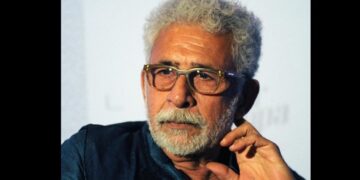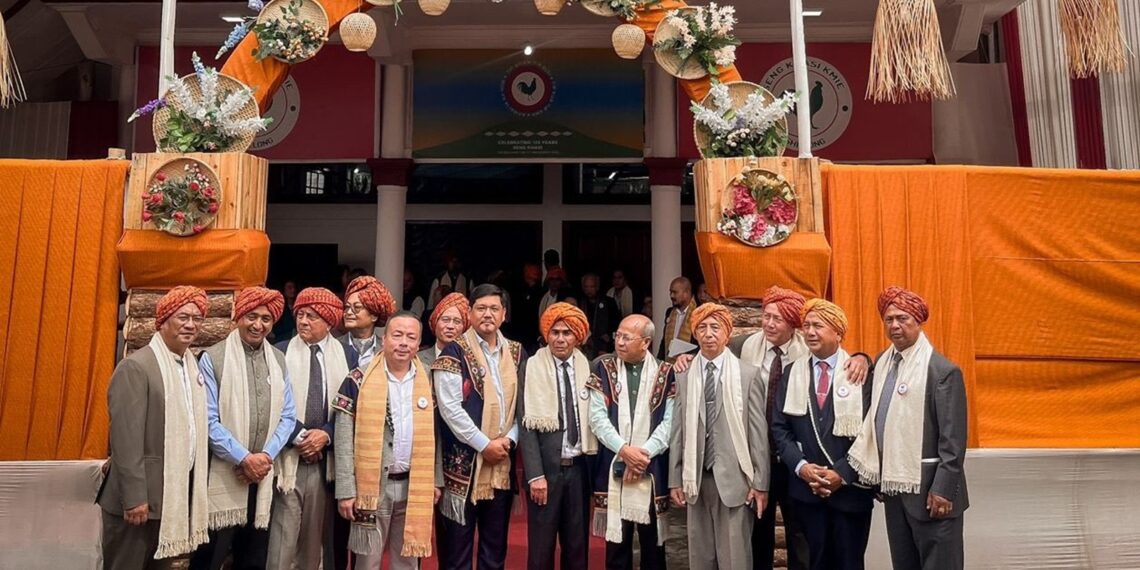Shillong: Meghalaya Chief Minister Conrad K. Sangma laid the foundation stone for the Indigenous Cultural Centre of Seng Khasi Kmie at Mawkhar, marking the beginning of a landmark initiative dedicated to the active practice, preservation, and promotion of Khasi culture.
The event was attended by Deputy Chief Minister Prestone Tynsong, Art and Culture Minister Paul Lyngdoh, and respected members of the Seng Khasi movement and community elders.
Conceived with a budget of Rs. 15 crore, the centre is not merely a structure of cultural display—it is being designed as a vibrant, multi-functional space where Khasi traditions will be taught, performed, documented, and passed on in a living, communal environment.
“This centre is more than a building—it is a living institution where our customs, language, and spiritual practices will find a permanent home,” said the chief minister.
“It will be a place where our youth engage with our heritage, not just observe it.”
The Indigenous Cultural Centre will be purpose-built to host rituals, ceremonies, traditional performances, lectures, and workshops—activities that have for over a century taken place in open or improvised settings without proper infrastructure.
By providing dedicated spaces for these expressions, the centre will strengthen the cultural fabric of the community, ensuring that practices long preserved orally or informally are actively sustained in a meaningful, dignified way.
“Our identity lives in what we do—not just in what we remember,” Sangma said. “This centre will provide continuity for rituals that have long been held without the spaces they deserve.”
Planned as a learning space as much as a ceremonial one, the centre will enable elders, scholars, and traditional custodians to engage directly with the younger generation.
Through hands-on workshops, story sessions, and collaborative events, the centre will facilitate the transfer of cultural knowledge, craft, and oral histories in a way that fosters mutual respect and deepens cultural understanding.
Sangma emphasised that the facility will serve as a platform where youth can learn the Khasi worldview, including its spiritual, linguistic, and philosophical dimensions, under the guidance of experienced cultural practitioners.
A key component of the centre’s function will be the preservation of intangible cultural heritage through research and documentation.
The chief minister highlighted efforts under the Chief Minister’s Research Fellowship (CMRF), which encourages scholarly work on indigenous belief systems, folklore, and traditional governance models—areas often overlooked in mainstream academic narratives.
“We cannot rely solely on memory,” he noted. “We need documentation, interpretation, and preservation rooted in our own voices.”
Importantly, the Indigenous Cultural Centre is a project born from within the Seng Khasi community itself—a model of participatory planning and cultural stewardship.
ALSO READ: Zelenskyy makes peace overture in Turkiye, but Putin is absent
“This initiative was envisioned by the community, and it will be shaped by the community,” said Sangma. “Our government’s role is to support and collaborate—not dictate.”
The centre aligns with Meghalaya’s broader vision of inclusive cultural development, which has been a focus since 2018. Sangma reaffirmed the government’s ongoing commitment to protect and promote the distinct heritages of all communities across the state.
“India’s beauty lies in its diversity,” he said. “We want every community to thrive and showcase its unique identity within the larger tapestry of our nation.”















